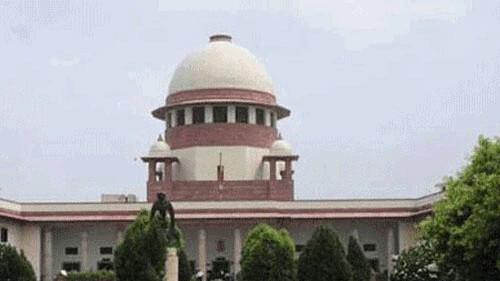In a significant legal pronouncement, the Supreme Court of India has emphasized a crucial criterion for appointments, stating that they can be made only for posts that have clear and anticipated vacancies. This clarification is likely to have far-reaching implications for recruitment processes across various sectors and underscores the importance of transparency and precision in filling vacant positions.
The Supreme Court’s directive is grounded in the principle of ensuring fairness and meritocracy in appointments, aiming to prevent ambiguity or arbitrary decision-making in the recruitment process. The requirement for vacancies to be clear and anticipated sets a standard for organizations to maintain transparency and provide equal opportunities to qualified candidates.
The decision resonates in the context of public and government appointments, where adherence to established procedures and principles of fairness is paramount. By specifying that appointments should be based on positions with “clear and anticipated vacancies,” the Supreme Court seeks to prevent ad-hoc or discretionary practices that may compromise the integrity of the recruitment process.
This judicial clarification is likely to guide the approach of government bodies, public institutions, and private organizations involved in appointments and recruitments. It reinforces the need for organizations to have clear policies and procedures in place, ensuring that appointments are made based on legitimate requirements and avoid any perception of favoritism or arbitrariness.
The Supreme Court’s stance aligns with the broader principles of accountability and good governance. By emphasizing the necessity for transparency and anticipation of vacancies, the decision aims to promote a fair and systematic approach to appointments, fostering confidence in the recruitment processes across different sectors.
As organizations revisit their recruitment policies and practices in light of this directive, the Supreme Court’s decision is expected to contribute to the establishment of robust and accountable systems for filling vacancies. It reinforces the judiciary’s role in upholding principles of fairness and merit in matters of public and organizational importance.
In conclusion, the Supreme Court’s assertion that appointments can only be made for posts with clear and anticipated vacancies sets a significant precedent for recruitment practices in India. The decision underscores the importance of adherence to established procedures, transparency, and fairness in ensuring that appointments are made based on merit and in the best interests of the organizations and the public.
Sponsored
FACTS Transcripts
Apply for a University document anywhere
https://www.factstranscript.com
Quick Transcripts for popular Universities, check your University name now and get started. We help you to get your transcript application online which is accepted for use of IRCC.
No DD, NO Paperwork. 100% Authentic, Reliable.
FACTS Transcripts Charges · Reviews · Assam Universities · Home · Know your University










